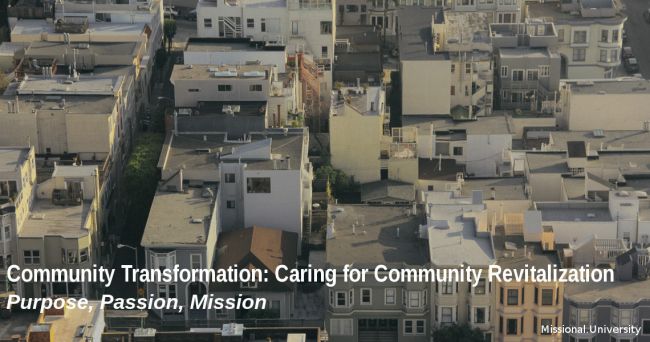DEPARTMENT OF COMMUNITY TRANSFORMATION
Explore Community Transformation
Academic Programs
Dual Enrollment Academies
Certificate Programs
Associate Certificate programs
Undergraduate Certificate programs
Degree Programs
Associate Degrees
Bachelor Completion Degrees
Bachelor 2+2 Degrees
Masters Degrees
- Master of Divinity Dual Degree / MCM
- Master of Community Ministry
Doctoral Degrees
Course Descriptions
Undergraduate Courses
Graduate Courses
Resources
Contact
- Still Have Questions?
- Contact Admissions
Calendar

About the Department
The Department of Community Transformation is comprised of both undergraduate and graduate degree programs applicable to a variety of practice settings and situations, as well as further education in professional fields. A degree in Community Transformation will equip MU students practically, personally and theologically to provide effective leadership in areas in North American and global contexts. Graduates will be prepared to lead congregations and faith-based community organizations in today’s complex and urban environments to serve the community in biblically-based and missionally-driven ways. The Community Transformation curriculum is taught by faculty experts with decades of experience serving the developed and developing world.
Areas of Study
The Department of Community Transformation with its biblical focus equips MU students to empower the local church and organizations to do what charity and aid are unable to do alone: to create sustainable, self-reliant, thriving communities throughout the world.
Community Development: explores community service, economic development, asset-based strategies, and social change.
International Development: investigates international development theories, approaches to alieviating poverty, postcolonialism and imperialism, and the effects of globalization and digitalization on global cultures
Learning Outcomes
Upon graduation, through knowledge and scholarship, faith, community and global understanding, Missional University graduates who complete the program will be able to
*Examine the complex relationship and personal values in professional practice.
*Integrate principles that embrace human diversity in responding to pressing real- world problems.
*Apply theory and research through service in real-world settings.
*Demonstrate service to others through professional actions.
*Demonstrate principles that embrace human diversity through freely serving communities, domestically and globally.
*Build leadership capacity through theory to practice application in real-world settings and by sharing scholarship with the larger community.
*Articulate the influence of faith and personal values on making professional decisions.
*Co-construct meaningful collaborations with diverse local, national and global communities of practice.